
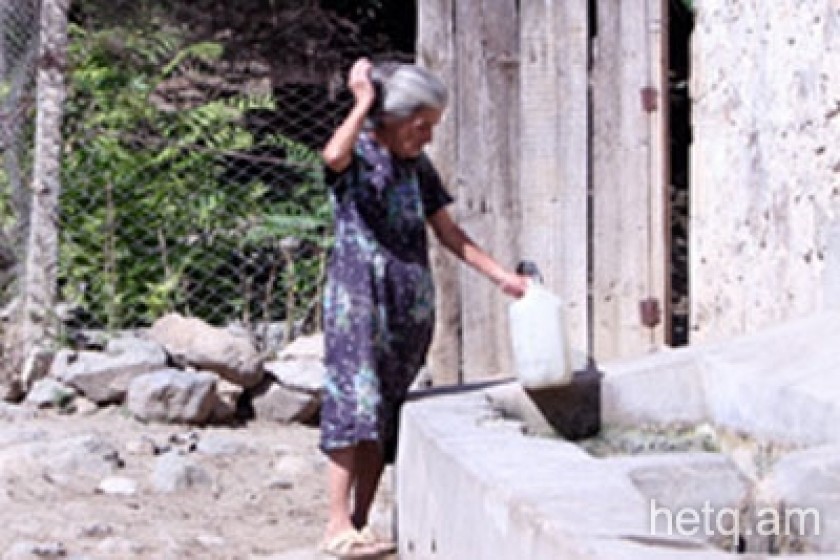
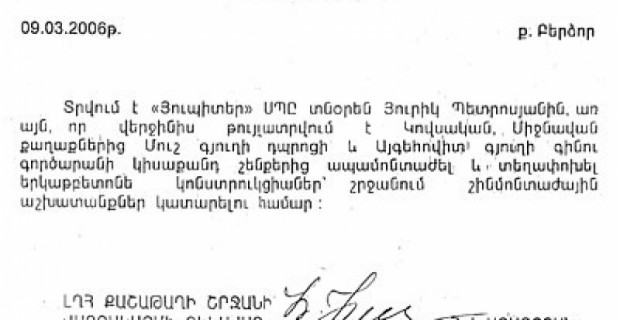
We obtained the document pictured here in Berdzor. As you can see, this license gives Yurik Petrosyan, the director of Jupiter, Ltd. permission to dismantle the reinforced concrete structures of damaged houses in several settlements to use the material for construction work elsewhere in the region.
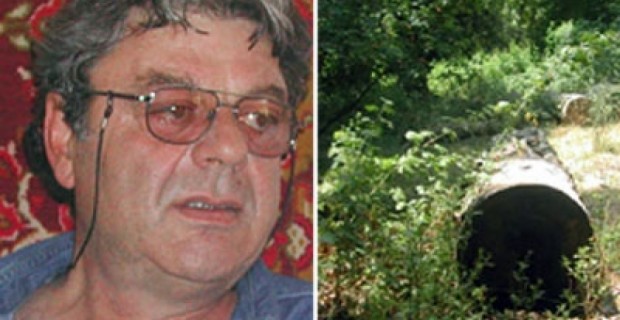
“They came in the middle of winter and shut off our electricity. What Turk would do that?” asked Nazo – Nazareth Liparityan – who moved to Ditsmayri from Beirut in 1999.
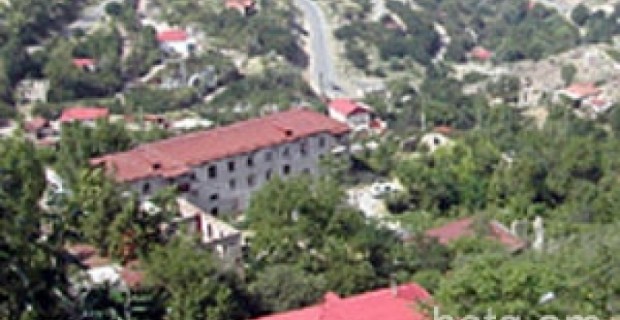
Tsaghkaberd, the largest village in the Kashatagh region of Nagorno Karabakh, has about 1,000 hectares of arable land. 600 hectares is allocated to the villagers for cultivation, but only few of them are able to make use of their land.
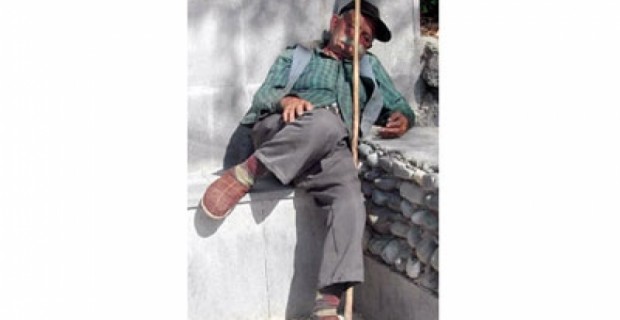
In Berdzor, the regional center of Kashatagh, life has become sort of sleepy. People have grown lazy – it can be felt even in the way they walk and talk. It is not like it used to be, that's for sure. In the villages located some tens of kilometers from Berdzor, they have given in to disappointment.
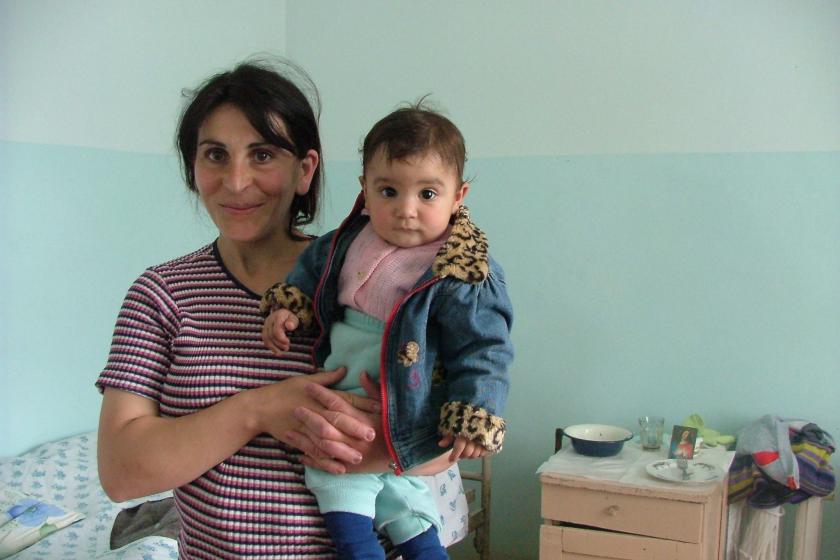
A child was born at the hospital in Berdzor on June 18. When we returned to Berdzor on June 22, after touring the villages of the Kashatagh region, there was another birth in progress. “We have an average of two births a week,” said the nurse on duty.

The village of Maratuk with its three households is located near the road leading from Berdzor to the south. A well-groomed garden running along the path from the roadside toward the village is a welcome sight after the drought-dried greenery along the main road.

“You can never come back from the war. You can come back physically, but not spiritually, “ says Kharabakh war veteran Doctor Artsakh Bunyatyan. He seems to have found one to escape this condition: he drinks vodka (or sun liquid, as he calls it) and offers it to his visitors.

“Hambaryan Pargev Washingtonovich,” was the answer we received from the father of many children from the village of Haykazyan to our question, “What is your name?” The villagers simply call Pargev Washingtonovich Hambaryan Pasha.

In 1994, a policy of repopulating the Lachin Corridor with refugees and families from throughout Armenia was instituted. But now, many of the families who moved to the area are leaving. The current head of the regional administration in Kashatagh, as the area is now known, is Hamlet Khachatryan, appointed through a decision by the NKR government in November 2004.
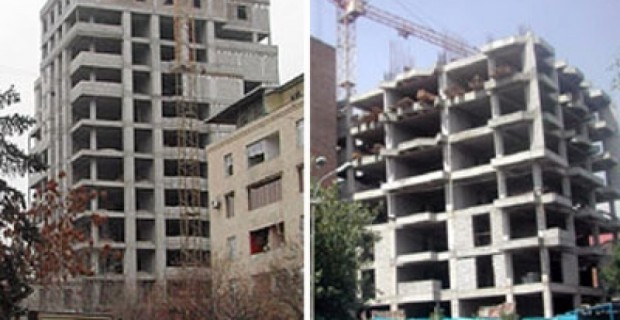
According to a June 22, 2006 Government Decision, 1,177 square meters of land at the intersection of Abovyan and Tumanyan Streets out of a 1,415 square meter plot belonging to the State Committee of Sport was allocated free of charge to the Armenia's Oligarch Number One, member of parliament, president of the Multi Group Concern, president of the National Olympic Committee of Armenia, and founder of the Prosperous Armenia political party,...
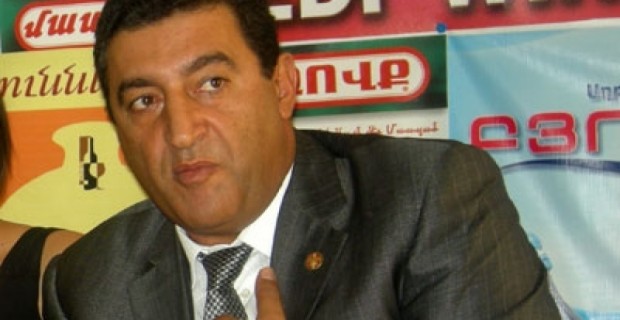
An interview with Vardan Ayvazyan, Minister of Environmental Protection

Piles of passports like these can be seen in various photo shops throughout Yerevan, passports of those citizens of Armenia who have agreed to join the political party Prosperous Armenia .
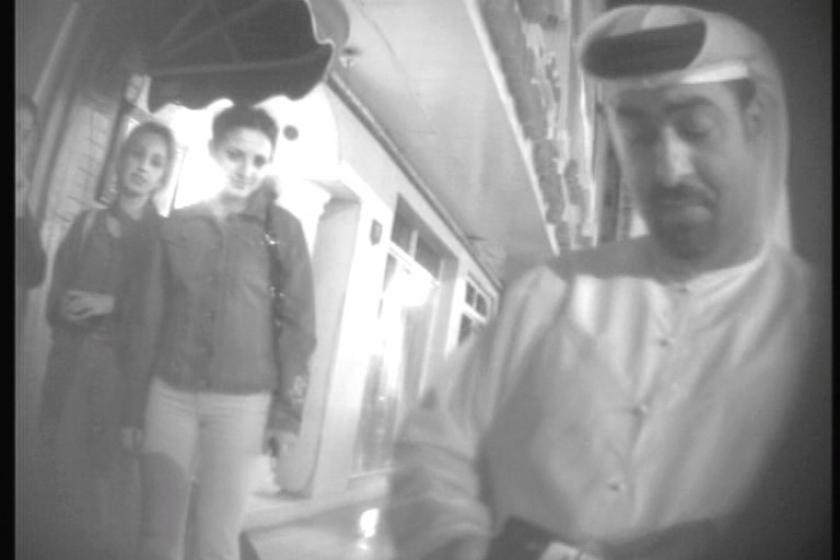
The man in national dress pictured here works for the Criminal Investigation Department of the United Arab Emirates (UAE). On February 3, 2005, under his supervision, pimps of various nationalities were selling women right in front of the Inter City hotel in Dubai. Among the women were underage girls, including Armenians.
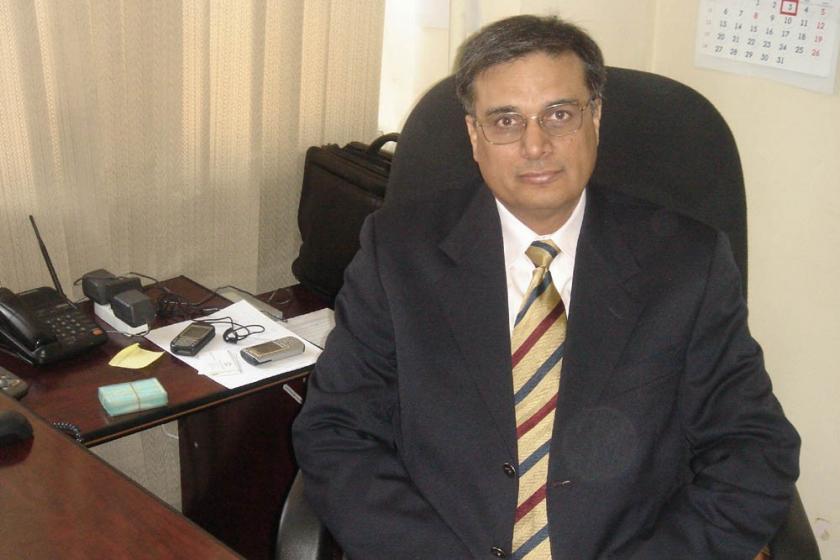
Interview with B.K. Sharma, Chief Executive Officer of Ararat Gold Recovery LLC
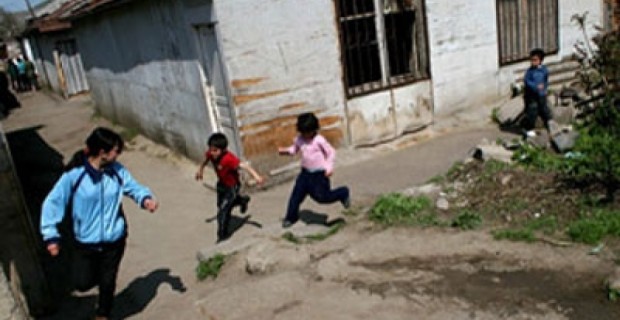
Not much has changed over the last two years in the life of Arthur Avalyan, who occupies one of the wooden shacks in the Janjanots district in the center of Berd.

Armen Sargsyan from Tavush celebrated his 16 th birthday this January in Abovyan's correctional facility for juvenile criminals. He had stolen two copper pots used for distilling vodka and sold them to a metal trader for 2,000 drams.

Few people know the Tutunjyan family in Berd. Nobody visits them, except for Hanna, a German nun.

There is an Armenian adage - "One robber robbed another one; even God was surprised." I am not sure if other nations have a similar saying, but this is a brilliant description of the battle against corruption in Armenia.

Stone fragments with Armenian letters inscribed on them were scattered on the ground.

A file sent to the Office of the Prosecutor General from the Police Service of Armenia in March 2006 contains allegations from sisters G. and S. that Yerevan resident Gayane Darbinyan took them to Dubai in the United Arab Emirates where they were subjected to sexual exploitation.
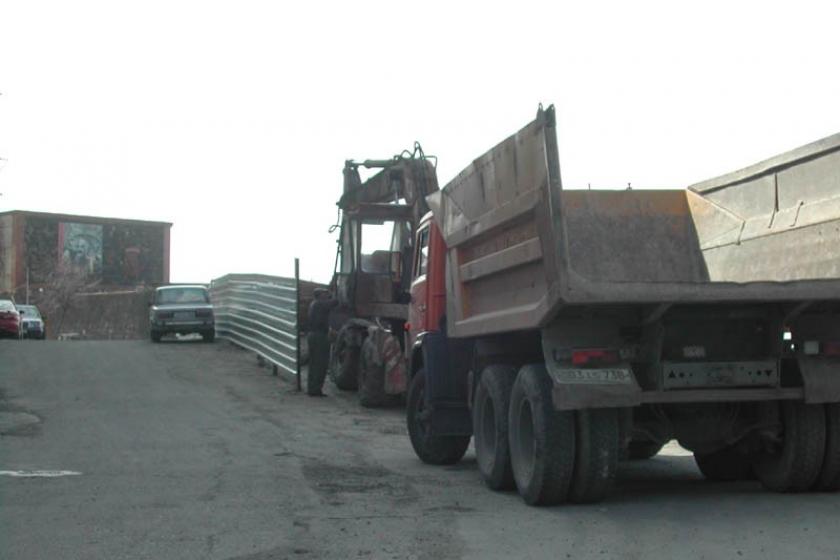
"You will not find anyone in Yerevan who believes that auctions are held fairly," President Robert Kocharyan stated last January 20 during a visit to the Yerevan Mayor's Office.
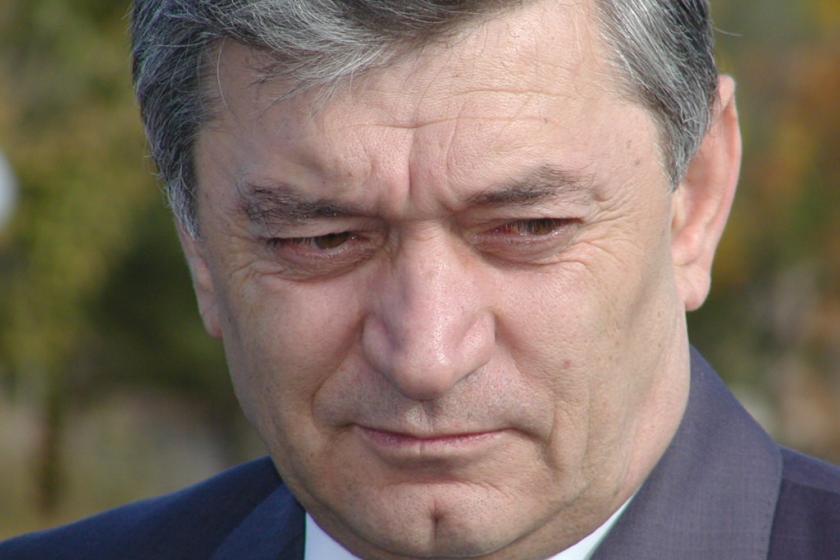
"The answer is simple. I don't have to convince you that you are wrong, but rather check the company that you mention on the tax front. That will be my job,” said Felix Tsolakyan, head of the State Tax Service.

Every politician, known and less-well known, and official in high or low position talks about corruption and the shadowy nature of the economy. Everyone claims to be waging a war against these problems. The most common ways of doing so are speaking at seminars, joining international organizations and participating in their events, and, of course, peppering pre-election speeches with rhetoric on these fronts.

Sources within the Prosecutor General's Office of the Republic of Armenia have told us that the investigators in the case of US philanthropists George and Carolann Najarian were recently rewarded for achievements by their superiors.

Nver Hakobyan was ten when his mother died at the age of 32 in the village of Khashtarak in the Idjevan region in 1986.

Interview with B.K. Sharma, Chief Executive Officer of the Ararat Gold Recovery LLC

Armine (not her real name) from Hrazdan spent a year in Dubai as a sex slave in the control of the notorious pimp Anahit Malkhasyan, or Dbr Ano, who was wanted by Interpol. On October 3, 2005, Malkhasyan was killed in a car accident in Dubai under suspicious circumstances. The Office of the Prosecutor General of Armenia closed the criminal case against her.
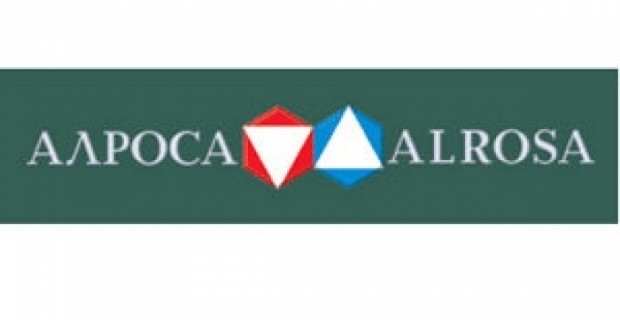
"Alrosa failed to agree on the acquisition of Ararat Gold Recovery Company (AGRC) with Sterlite Industries Limited," Arminfo reported on January 11, 2006. According to the news agency, Alrosa, a Russian diamond mining company, expressed an interest in acquiring the Armenian Gold Recovery Company. They failed to agree on the deal, however.
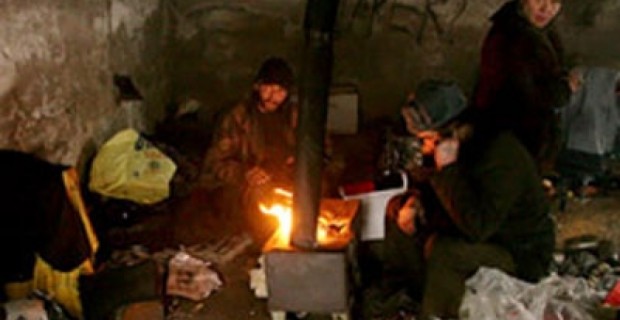
“In December, three homeless people that we knew died,” says Seryoja Vardazaryan, himself relegated to living on the streets.
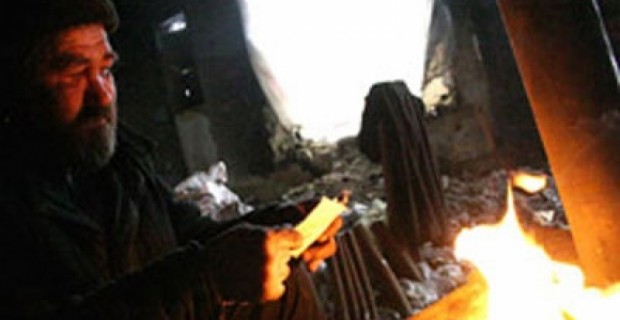
Fifty-year-old Sergey Razganyaev has been in Armenia for seven years and is unable to return to his home city of Chelinadolsk in the Tatarstan Autonomous Republic of the Russian Federation.

Certain aspects of the work of the Ararat Gold Recovery Company (AGRC), owned by Sterlite Gold, are worrisome.

Armenian partners in the AGRC joint venture were surprised when, after they offered support to Anil Agarwal, there was no collaboration as originally expected, but instead the Indian side simply ignored the Armenians' proposals.
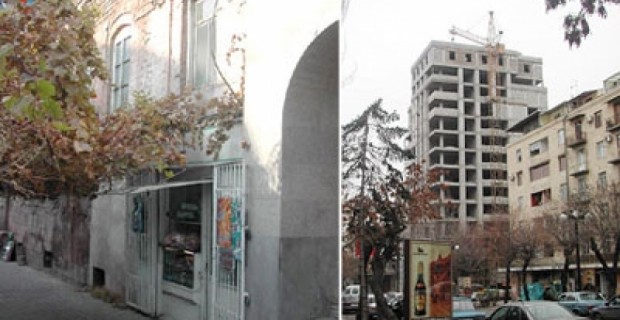
In accordance with rulings at all three levels of the Armenian court system, Rafik Chichakyan must vacate Apartment #3 at 5/1 Abovyan Street.

An article published on November 25, 2005 on www.mineweb.com, an international mining publication focusing on mining finance and corporate news, suggested that Anil Agarwal, the chairman of Vedanta Resources and Toronto-listed junior miner Sterlite Gold, is likely to lose a major goldmine project in Armenia.

The only desert in Armenia is situated in the Ararat valley. This desert, 1 km long and 1.5 km wide, is manmade, the result of twenty years of work by the Ararat gold processing plant.
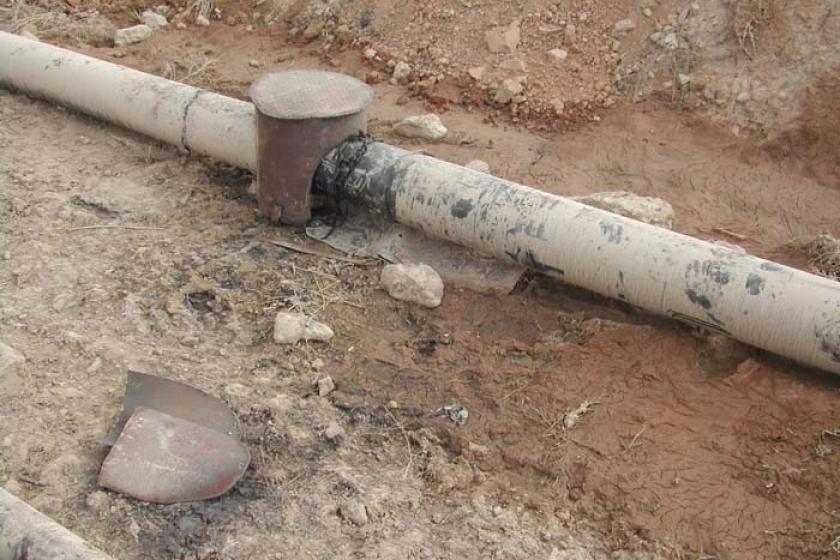
At a discussion held at the Marriott Armenia Hotel on December 2 nd , the Ararat Gold Recovery Company ltd. (AGRC) once again presented its plans for building a gold processing plant near the Sotk mine, twenty kilometers away from Lake Sevan.

A few months ago, Turkish Prime Minister Recep Tayyip Erdogan stated in a speech that Turkey hosts around 40,000 Armenian citizens. What are so many Armenians doing in different locations within Turkey? They are mainly in trade, working in the service industry, or, painful as it is to admit it, involved in the sex business.

The Court of First Instance of Yerevan's Kentron and Nork- Marash Districts, Judge Pargev Ohanyan presiding, has ruled to terminate the decision by the Office of the Prosecutor General of the Republic of Armenia to dismiss the case against Grigor Igityan.

On November 11 th in Echmiadzin, the Court of First Instance of Armavir announced its ruling in a case involving trafficking in women.
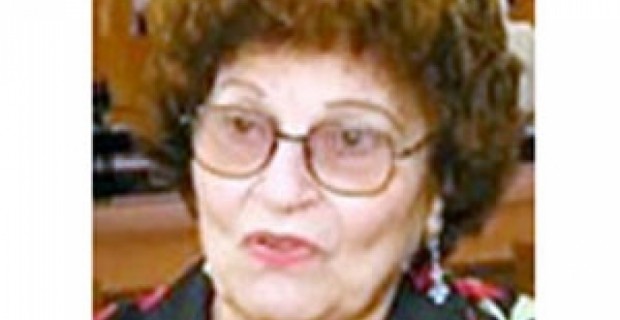
On November 4, 2005 the Holy See of Echmiadzin fired Sonya John, the director of the Armenian College of Calcutta.
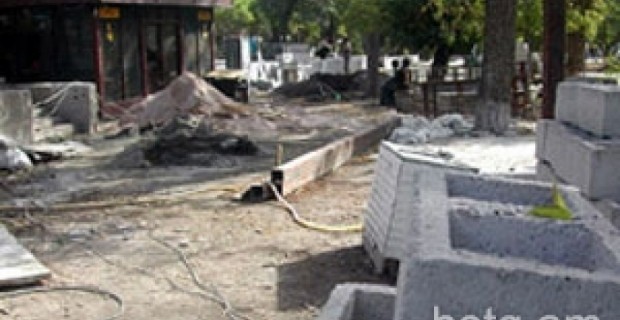
"Two of the structures - the billiard-house and the toilet - have been pulled down; construction in the park has been halted.

A sign in the park in front of the Yerevan Chamber Music Hall announces the planned construction of "a cafe, bistro, bar, swimming pool, toilet, play ground, and car park."
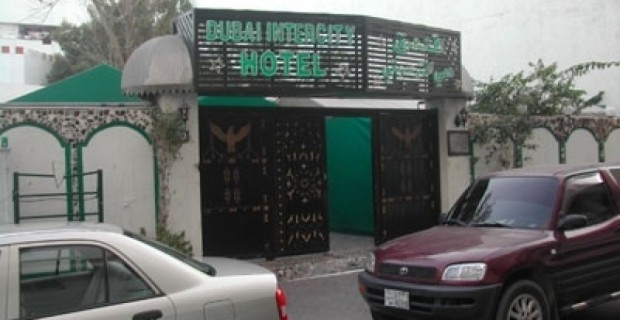
Siranush Musayelyan, recruiter. From the village of Lusagyugh, near Echmiadzin. Sentenced twice before.

Susana Sukiasyan (a.k.a. Grpo Suso), a Dubai pimp who had been sought by the Armenian police, was arrested in July, along with ten women who were worked for her. According to our sources in the Dubai police force, Sukiasyan's arrest was unconnected to her involvement in the sex trade.

On August 3, 2005 the hearing of the case against Natella Saghatelyan, a resident of Uzbekistan charged with violating Article 132 of the Criminal Code of Armenia (human trafficking) continued in the Court of First Instance of the Malatia-Sebastia District of Yerevan.
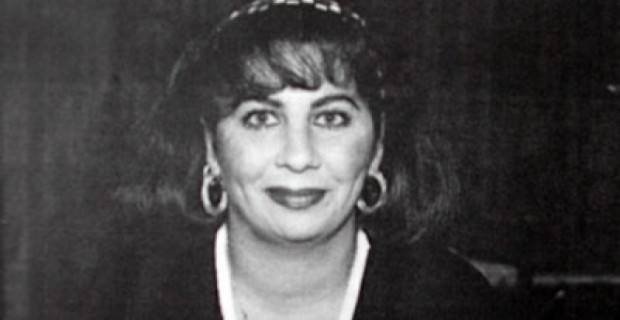
“And so in the beginning of 2003 the next phase of my activities began. I called Anahit Mlkhasyan, a Dubai pimp, and got Nune Kcheyan's phone number in Yerevan, which I can’t recall now. I called Nune, and asked her to find girls for me and send them to Dubai, so that they would do prostitution for me. She demanded $1,000 for each girl she would recruit.
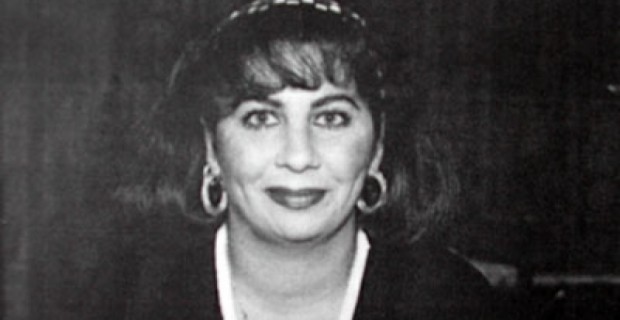
On May 25 2005, The Court of First Instance of the Kotayk Province, Judge Gagik Heboyan presiding, reviewed the request from the Abovyan prison and released prisoner Marietta Musayelyan before she had completed her sentence. Muselyan had been wanted by the police since 2003 and was sentenced to one year and six months in prison. She served only seven months.

“There are between 40 and 50 thousand Armenians in Greece , 16-17 thousand of which are Greek- Armenians born here. The rest are people who have come from Armenia over the last ten or fifteen years.”
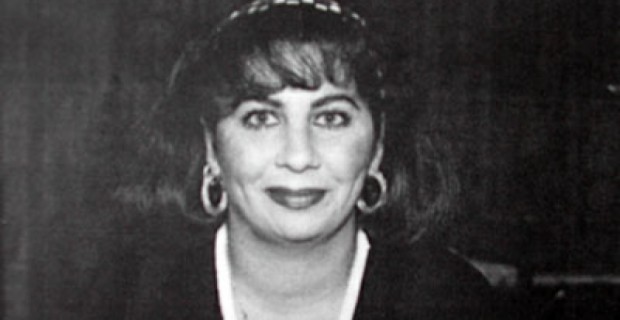
On May 25 th, The Court of First Instance of the Kotayk Province, Judge Gagik Heboyan presiding, issued a decision that is a classic example of the support pimps receive in the Armenian legal system.